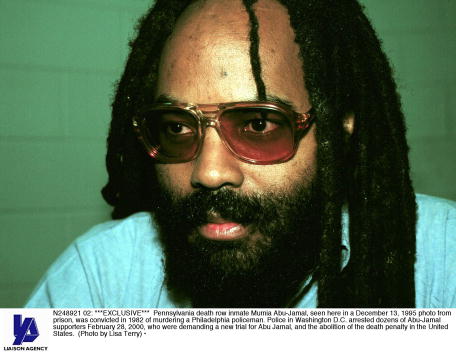
Mumia Abu-Jamal Source: Lisa Terry / Getty
Black Panther Mumia Abu-Jamal’s writings and artwork have been acquired by Brown University. His papers will be included in the Ivy league school’s collection of papers that focus on mass incarceration.
“The carceral system touches millions of Americans’ lives, yet the historical archive has a scarcity of stories of incarcerated people,” Amanda E. Strauss, director of Brown’s John Hay Library, said in a news release. “This Voices of Mass Incarceration collecting focus aims to provide researchers with unprecedented access to the first-person accounts they need to understand the experiences of people who have spent time in prisons and jails, enriching our collective understanding of how the expanding carceral system has transformed American society.”
Mumia Abu-Jamal was a journalist, radio personality, political activist and artist. He’s also a best selling author. After his arrest, a “Free Mumia” movement jumpstarted that sparked marches, benefit concerts and fundraisers. A street in Paris was named after him in 1996.
Abu-Jamal was convicted of murdering a Philadelphia cop and sentenced to death in 1982. He has adamantly claimed he is innocent. After a series of appeals, he was taken off of death row in 2011. He is serving life without the possibility of parole in a Philadelphia prison.
The works collected by Brown University span from 1981 to 2020. In the 60 boxes of his work there are poems, “prison and death row experiences; his reflections on civil rights and freedom; the challenges he has experienced as an activist in a maximum-security prison; and the public’s reaction to his case, as articulated in newspaper articles, films, cards and letters.” His journals and documents from his trial are included as well.
“This collection will give scholars a rare chance to peer inside prison walls and understand how incarcerated people live, think and advocate for themselves,” Kenvi Phillips, director of library diversity, equity and inclusion, said in the release.
Some of the papers and other records were provided by historian Johanna Fernández, who has advocated by Abu-Jamal’s release.









